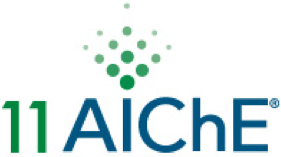

Anaerobic digestion (AD) is a proven technology for waste treatment. However, as the organic material becomes more valuable and being treated as resources, traditional AD process is no longer adequate. The Bioprocessing and Bioproduct Engineering Laboratory at Washington State University has been devoting its effort in developing the second generation of AD technology with the concept of biorefinery, featured by producing various products from improved AD processes. Key to an AD biorefinary is innovative design of the digestors. This presentation reports the recent results from a study aimed at evaluating a two stage-digester designed for treating food wastes operated within a solid concentration range of 15-20%. The digester had a unique two-stage configuration that resulted in high biogas production rate than the existing technologies based on the laboratory data. The experimental observations also led to a simple mixing design that has low capital and operational costs. The information provides some new insights in AD research and development related to municipal solid waste applications.
Presenter(s)
Once the content has been viewed and you have attested to it, you will be able to download and print a certificate for PDH credits.
If you have already viewed this content,
please click here
to login.
